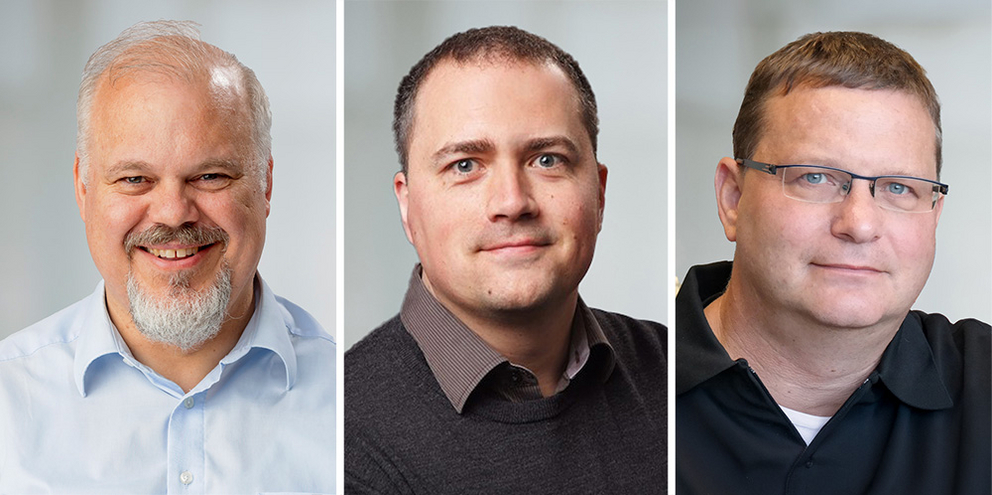In addition to "ProtPath", funding was granted for two other Research Training Groups at the University of Freiburg:
Transatlantic research on forest adaptation to climate change – FORSCALE
The international research training group IGK 3050 "FORSCALE:Scale Effects in the Forest Adaptation to Climate Change" is devoted to scale effects in the adaptation of forests to climate change. The main focus is on studying complex adaptive systems that take into account the interactions between biological, ecological, and societal processes across spatial and institutional levels. The project is a collaboration between the University of Freiburg and several Canadian universities (Lakehead University, University of British Columbia, University of New Brunswick, und Université du Québec). The goal of FORSCALE is to investigate cross-scale interactions in the biological adaptation of trees, the provision of ecosystem services, forestry measures, governance structures, and their integration.
"FORSCALE allows us to gain a comprehensive understanding of scale effects in forest adaptation in an international context for the first time ever, making it possible for German and Canadian junior researchers to develop targeted location- and governance-specific strategies together, each contributing their unique perspectives. In this way, FORSCALE establishes strong international ties in forest adaptation", says Prof. Dr. Thomas Seifert, professor of forest growth and dendroecology at the University of Freiburg and FORSCALE spokesperson.
The research training group’s qualification concept gives a total of 40 doctoral candidates and 4 postdocs the opportunity to develop their expertise in an international and interdisciplinary setting offering practical relevance, stakeholder integration, intercultural exchange, and methodological breadth.
At the interface between pure and applied mathematics – IGK 3132
The University of Freiburg is collaborating with the University of Pisa and the Scuola Normale Superiore to establish the international research training group IGK 3132 "Analysis of Nonlinear PDE: Conformal Energies, Optimal Forms, and Continuum Mechanics", which is devoted to the study of nonlinear partial differential equations – a key field of modern mathematics with far-reaching applications. The main focus is on research projects in geometric analysis, form optimization, and continuum mechanics. The 15 participating researchers will study Willmore energy and the related topic of the elastic properties of slender objects, develop phase-field models as numerical tools for form optimization, and integrate stochastic methods for solving deterministic problems in fluid mechanics.
"We’re extremely pleased to receive funding from the German Research Foundation for this international research training group. The support will make it possible for a new generation of mathematicians to profit from the complimentary expertise of and close collaboration between Freiburg and Pisa in the field of nonlinear partial differential equations", says Prof. Dr. Patrick Dondl, professor of applied mathematics at the University of Freiburg and spokesperson of IGK 3132.
Training in the international research training group involves dual supervision and intensive research stays abroad, thus preparing the junior researchers in the best possible way for solving the complex mathematical challenges of our times.
A total of 18 new research training groups and 10 extensions
The German Research Foundation (DFG) is establishing a total of 18 new research training groups (GRK) nationwide in an effort to boost the careers of junior researchers. The new research training groups will receive a total of 130 million euros in funding over an initial five year period starting in spring 2026. The new groups include four international research training groups (IGK) with partners in the USA, Italy, Canada, and France. In addition to the 18 newly established groups, the grants committee approved extensions for ten research training groups for an additional funding period. Research training groups offer doctoral candidates the opportunity to complete their doctoral degree in a structured research and qualification programme offering highly specialized training. The DFG is currently funding a total of 214 research training groups, including 29 international research training groups.






